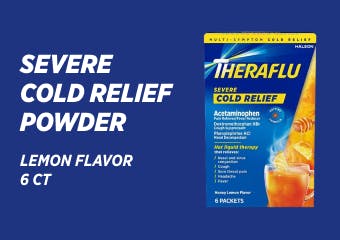How Effective is the Flu Shot
Your protection from the flu depends on age and health factors of the person getting vaccinated and the similarity between the viruses used to produce vaccine and those in circulation.1 Some people who get vaccinated may still get sick. However, flu vaccination has been shown to reduce severity of illness in people who get vaccinated but still get sick. Flu vaccination isn't a perfect tool, but getting the flu shot is the best way to protect against the flu and reduce the risk of flu complications that can lead to hospitalization or death.1 Benefits of the flu shot include:
- Flu vaccination can keep you from getting sick with the flu
- It reduces the risk of flu-related hospitalization for older adults, working-aged adults and children
- Flu shots are important preventative measure for people with chronic health conditions
- They help protect pregnant women during and after pregnancy
- Flu vaccines can save children's lives
- It is shown to reduce illness severity if you get vaccinated but still get the flu
- Vaccinations can protect the people around you including those who are most vulnerable1
Different Types of Flu Vaccines
Firstly, the flu shot formulation changes from year to year based on the research predicting what influenza viruses will be most prevalent. There are also several different types of flu vaccines available each year. The CDC recommends the use of any licensed, age-appropriate influenza vaccine for the 2020-2021 influenza season, including inactivated influenza vaccine [IIV], recombinant influenza vaccine [RIV], or live attenuated influenza vaccine (LAIV). There are trivalent (three-component) and quadrivalent (four-component) vaccines. Most are manufactured using virus grown in eggs, some in cell cultures and others egg-free. None of these flu vaccine types are better than any other, but they may be better suited to you than others based on age, allergies and other health issues.1
As well as different ways of developing the vaccine formulation, there are different ways to administer the vaccine. Although we commonly refer to the influenza vaccine as a flu shot, there is also a nasal spray vaccine. A nasal spray vaccine, as its name suggests, is sprayed into the nose instead of using a needle. It contains a live, weakened flu virus. The more common flu shot contains a dead virus that is administered with a needle into an arm muscle.2 Make sure to talk to your doctor to determine the best flu shot for you and your personal medical needs.
Who Should get the Flu Shot?
According to the CDC, all people ages six months and older should get a flu shot every year with only rare exceptions. You should discuss flu vaccine options with your doctor or telemedicine provider.1
When should you get the flu vaccine?
You should get your flu shot before flu viruses begins spreading in your community, since it takes about two weeks after vaccination for antibodies to develop and provide protection against the flu. The CDC recommends getting it by the end of October. The flu virus typically spreads in the United States from October to May with a peak of infection in January and February. However, you can get your vaccination at any time during the season and it can still help protect you. And even if you get the flu, experts still recommend getting a flu vaccine because you can be infected by a different influenza virus again.2
Now that you know how the flu shot works, how it can help you, and who should get it, make sure to get your flu shot this year! If you have further questions or concerns about your specific flu vaccine or how to protect yourself against the flu adequately, reach out to your healthcare provider.





